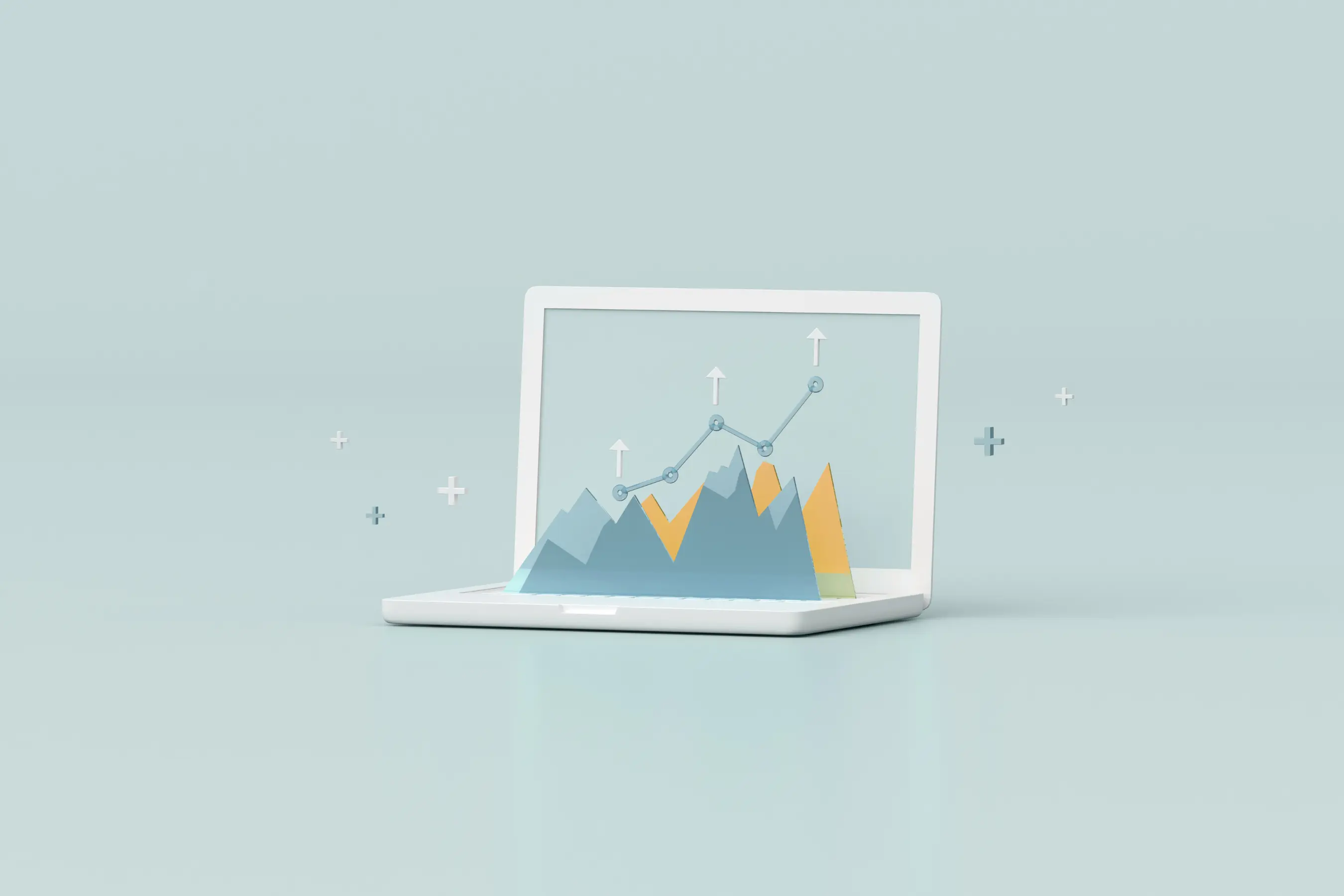.webp)

Why Competitors Pay Less and Get More: The Ultimate Guide to PPC Optimization in 2025
If you’ve ever wondered why your competitors seem to pay less for clicks yet generate more leads and revenue, the answer often comes down to PPC optimization. In today’s highly competitive Google Ads environment, smart businesses aren’t just throwing money at ads — they’re strategically refining their campaigns for cost efficiency, high ROI, and long-term growth.
At D.tech, we’ve helped startups, small businesses, and enterprises unlock Google Ads cost optimization strategies that level the playing field. In this guide, we’ll break down actionable PPC advertising strategies so you can reduce wasted spend, improve ROI, and outsmart competitors.
1. What is PPC Optimization and Why It Matters
PPC optimization is the ongoing process of refining your paid advertising campaigns (like Google Ads) to achieve better performance at lower costs. Instead of simply increasing ad budgets, optimization focuses on:
- Reducing unnecessary spend through targeting precision.
- Improving ad quality to achieve higher click-through rates (CTR).
- Maximizing ROI by aligning campaigns with actual business goals.
When done right, Google Ads cost efficiency isn’t about spending less — it’s about spending smarter.
Mini Takeaway: Your competitors may not have bigger budgets, but they likely have smarter PPC campaign management practices in place.
2. Why Competitors Pay Less and Get More
Many advertisers mistakenly think the highest bidder always wins in Google Ads. In reality, ad rank is determined by a mix of bid amount, ad quality score, and expected impact.
Here’s why competitors often outperform despite smaller budgets:
- Better Quality Scores: Ads with strong relevance and landing page quality get cheaper clicks.
- Targeted Campaigns: Competitors might be leveraging ppc advertising best practices like precise geotargeting, device targeting, or time-based ads.
- Smarter Budget Management: They optimize around what works instead of spreading spend thin across ineffective campaigns.
- Data-Driven Decisions: Using ppc advertising case studies and historical data, they refine ads continuously.
Mini Takeaway: If you’re paying more per click than competitors, chances are you’re missing opportunities to improve relevance, targeting, or bidding strategy.
3. Proven PPC Campaign Optimization Strategies
Let’s break down the best PPC advertising strategies for 2025 that businesses should apply:
a) Optimize Keywords and Match Types
- Use long-tail keywords to reduce competition and increase conversion rates.
- Leverage negative keywords to avoid irrelevant clicks.
- Balance broad, phrase, and exact match types to capture both reach and intent.
b) Improve Ad Quality and Relevance
- Write compelling, benefit-driven copy.
- Test multiple versions of ad headlines and descriptions.
- Align ad messaging directly with landing page content.
c) Smart Bidding and Budget Management
- Explore automated bidding strategies tailored to goals (e.g., Target CPA or Maximize Conversions).
- Adjust bids for devices, locations, and time zones where performance peaks.
- Apply Google Ads cost-saving tips like dayparting to avoid wasted spend.
d) Landing Page Optimization
- Ensure fast load speed (under 3 seconds).
- Use clear CTAs that align with ad promises.
- Apply ppc cost reduction techniques like A/B testing for layouts and offers.
Mini Takeaway: Each tweak compounds over time — optimization is about marginal gains that add up to big ROI wins.
4. PPC Advertising for Small Businesses and Startups
Startups and small businesses often assume they can’t compete with larger budgets. But the right ppc optimization for startups makes competing possible — and even gives smaller players an edge.
Why PPC Works for Small Businesses:
- Immediate visibility even without strong organic SEO presence.
- Flexible budgets with cost control down to the daily level.
- High-intent targeting means you only pay for qualified clicks.
Tips for Small Businesses:
- Focus on geo-targeting local markets.
- Use Google Ads efficiency strategies like smart campaigns for lead generation.
- Double down on niche keywords competitors might ignore.
Mini Takeaway: With the right ppc strategies for small business, even a modest budget can generate impressive results.
5. Measuring ROI: How to Know If PPC Campaigns Are Working
The biggest mistake in ppc campaign management is running ads without tracking ROI. Success isn’t about impressions or clicks — it’s about revenue and conversions.
Key Metrics to Track:
- Cost per Conversion (CPCV) – Are you paying too much per lead or sale?
- Click-Through Rate (CTR) – Indicates ad relevance and engagement.
- Quality Score – Impacts both ad rank and cost per click.
- Return on Ad Spend (ROAS) – The ultimate measure of profitability.
Mini Takeaway: Always tie campaigns back to revenue outcomes, not vanity metrics.
6. Advanced PPC Optimization Trends in 2025
The landscape of ppc advertising trends 2025 is evolving rapidly. Here’s what forward-thinking businesses should pay attention to:
- AI-Driven Campaigns: Google’s AI is getting better at predicting user intent. Businesses leveraging Google Ads optimization strategies with AI gain efficiency.
- First-Party Data Targeting: With privacy changes, businesses must optimize campaigns using owned data for better targeting.
- Voice and Visual Search Ads: Google Ads for business growth is expanding beyond text into multimodal formats.
- Automated Budget Adjustments: Machine learning will handle micro-bid adjustments in real time.
Mini Takeaway: Staying on top of trends is what separates average campaigns from true ppc campaign success.
7. Case Study: How Optimization Beats Big Budgets
One of our clients, a startup in e-commerce, reduced their Google Ads cost per lead by 42% within 3 months.
What Changed?
- Implemented negative keywords to cut irrelevant clicks.
- Shifted budget into high-performing campaigns only.
- A/B tested ad copy that boosted CTR by 27%.
Result: They outperformed a major competitor spending 3x more in the same niche.
Mini Takeaway: PPC optimization isn’t about spending big — it’s about spending smart.
8. Action Plan: How to Start Reducing PPC Costs Today
If you want to see results fast, start with these ppc campaign tips:
- Audit your current campaigns for wasted spend.
- Improve ad copy relevance and landing page alignment.
- Add negative keywords immediately.
- Test automated bidding strategies cautiously.
- Track conversions and optimize for ROI, not clicks.
Mini Takeaway: Even a few small adjustments can significantly reduce costs and improve performance.
Conclusion
Your competitors aren’t necessarily spending more — they’re just smarter about ppc optimization. By focusing on ad quality, targeting precision, and ROI-driven strategies, you can pay less per click while generating more leads and revenue.
At D.tech, we specialize in helping businesses — from startups to established brands — master Google Ads optimization strategies that drive measurable growth.
If you’re ready to stop wasting ad spend and start seeing higher returns, reach out to us. With the right strategy, your next PPC campaign could finally deliver the results you’ve been chasing.


.webp)
.webp)
.webp)
.webp)
.svg)